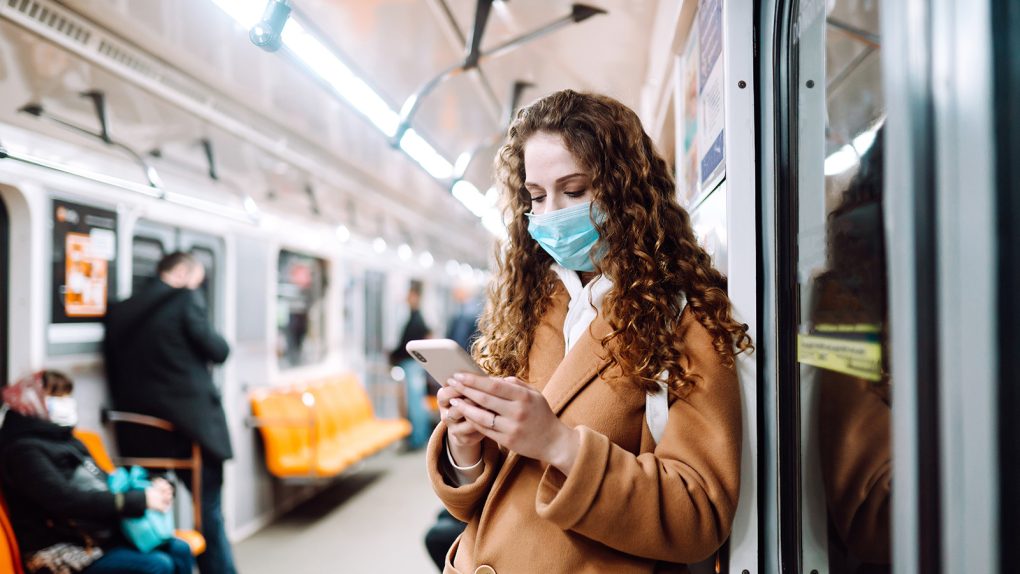- A new study about coronavirus immunity indicates that the kind of antibodies that can protect against COVID-19 reinfection can last for at least five months, if not longer.
- The new paper seems to contradict studies that say antibodies can wane after a few months, but not all antibodies are alike, and the ones that matter are ones that can bind to the spike protein and prevent it from infecting cells.
- Vaccine candidates aim to induce an immune response consisting of neutralizing antibodies and T cells.
Coronavirus immunity is a critical topic, and the conversation seems to be going back and forth on the matter. Knowing exactly how long protection against reinfection is the kind of information we need to beat the pandemic. The longer the immunity is, the safer the people who already survived the first round with the illness are. And the better the vaccine protection will be.
A study from the UK said a few days ago that immunity might be fading only a few months after the first bout with the virus. Researchers sampled hundreds of thousands of people randomly, looking for COVID-19 antibodies, and found that the percentage of positive tests dropped in just three months. However, the study did not follow up on the same patients to observe the evolution of antibodies. The study did not necessarily quality antibodies, as the researchers only tested for these proteins’ presence. And they did not look for other immune markers that would prove someone is immune to the coronavirus or not. Researchers explained that the presence or absence of antibodies would not necessarily indicate immunity or lack thereof.
But a new immunity study gives us the kind of news that makes vaccines look even more promising.
The immune system can generate all sorts of antibodies when dealing with a new pathogen, like the SARS-CoV-2. The ones that can block it from infecting cells are called neutralizing antibodies. That’s the kind of antibodies vaccines will teach the immune system to mass-produce upon an encounter with the actual coronavirus.
Researchers from the Icahn School of Medicine at Mount Sinai published a new paper in Science Magazine that says immunity to COVID-19 stays for at least five months.
“While some reports have come out saying antibodies to this virus go away quickly, we have found just the opposite — that more than 90% of people who were mildly or moderately ill produce an antibody response strong enough to neutralize the virus, and the response is maintained for many months,” Mount Sinai professor of vaccinology Florian Krammer said, per CNN. “This is essential for effective vaccine development.”
The study analyzed the antibody response for more than 30,000 people who tested positive for COVID-19 at Mount Sinai between March and October. They divided them into three categories based on the antibody response, including low, moderate, and high.
More than 90% of participants had moderate to high levels of antibodies that can neutralize the virus’s spike protein.
The researchers selected 121 patients to monitor closely. These COVID-19 survivors donated plasma three months after their initial symptoms and then a second time after five months.
“The serum antibody titer we measured in individuals initially were likely produced by plasmablasts, cells that act as first responders to an invading virus and come together to produce initial bouts of antibodies whose strength soon wanes,” director of Clinical Antibody Testing at the Mount Sinai Hospital Dr. Ania Wajnberg said of the first round of tests.
“The sustained antibody levels that we subsequently observed are likely produced by long-lived plasma cells in the bone marrow,” she explained the second test. “This is similar to what we see in other viruses and likely means they are here to stay. We will continue to follow this group over time to see if these levels remain stable as we suspect and hope they will.”
The researchers note that they can’t “provide conclusive evidence that these antibody responses protect from reinfection,” but they believe it’s likely these antibodies would decrease the odds ratio of reinfection.
More research on the matter is required, but if Mount Sinai’s conclusions are accurate, then vaccine-generated antibodies should provide similar protection. That’s assuming any of the vaccines that are almost done with Phase 3 trials turn out to be effective and safe.
Empirical observations indicate that the percentage of true reinfection is low. We did see a few cases of confirmed COVID-19, including one in the US. But those seem to be rare. Or if they are more frequent, people and officials miss them. The documented reinfection cases showed that the second infection could be milder or more severe than the first. But the data is hardly enough to give us any patterns. One explanation for the absence of a large number of confirmed reinfection could be that the second round isn’t as dangerous or symptomatic. But that’s just speculation.
The US and Europe are dealing with massive COVID-19 surges at the moment, and experts expect the pathogen to thrive in the winter months. As more time passes and as more people are exposed and reexposed to the virus, researchers will be able to determine the real risk of COVID-19 reinfection.








